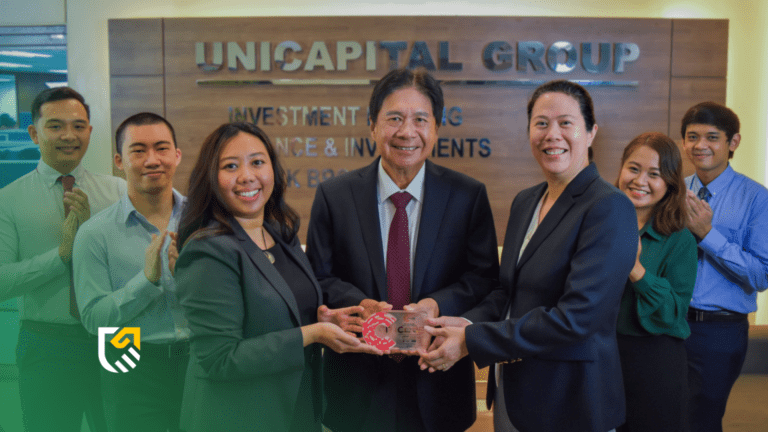Key Takeaways
Starting a laundry business franchise in the Philippines can be profitable with the proper planning, location, and equipment. Here’s what you need to do:
- Secure DTI/SEC registration and local permits
- Invest in efficient machines to lower utility costs
- Offer value-added services like delivery and loyalty programs
- Promote via social media and online business directories
Urban living in the Philippines has brought convenience to the forefront, but it’s also created new challenges, like managing everyday chores in cramped apartments or busy households. While basic chores like sweeping are easy, doing laundry is harder, especially if you don’t own a washing machine or have space for one. That’s why laundry shops are in high demand in cities like Metro Manila and Cebu.
If you’re looking for a profitable opportunity, starting a laundry business franchise in the Philippines is a great choice. For less than ₱500,000, you can turn a neighborhood need into a profitable venture.
This guide will walk you through each step: estimating startup costs, meeting regulatory requirements, and running and marketing your shop.
How Much Does it Cost to Start a Laundry Shop in the Philippines?
Starting a full- or self-service laundry franchise in the Philippines requires careful planning and budgeting, primarily if you aim for a small-to-medium setup. Initial investments typically range from ₱250,000 to ₱400,000, depending on the shop’s size, location, and business model.
Renting or leasing a location
Laundry shops in busy areas—like near condos, boarding houses, or malls—usually pay rent of around ₱20,000 to ₱40,000 per month. Choosing a visible, accessible spot attracts walk-in and repeat customers.
Purchasing or leasing equipment
Laundry machines are the backbone of your operations. A small shop with three to five washers and dryers can cost between ₱150,000 and ₱250,000, depending on whether you buy new or second-hand, or lease equipment. Efficient and energy-saving machines help reduce long-term electricity and water costs.
Utilities and supplies
Operational expenses include water, electricity, detergents, and other cleaning supplies. Monthly utility costs can vary, but typically add up to several thousand pesos, depending on machine load and frequency of use. That said, it’s crucial to invest in quality detergents and proper maintenance to prolong equipment life and improve service quality.
Staff wages and permits
Even a small laundry shop needs at least one to two employees to help customers, sort clothes, and fold laundry. You’ll need to cover their wages, social security contributions, and benefits. Business registration, barangay clearance, mayor’s permit, and BIR registration also add to your initial costs because they’re essential for compliance and credibility.
If you don’t have upfront capital yet, you can avail of Unicapital’s business loan in the Philippines to cover equipment costs, initial inventory, or shop setup without delaying launch.

What are the Requirements to Open a Laundry Shop in the Philippines?
More than just investing in machines and detergent, starting a laundry business also means meeting legal and regulatory standards to operate smoothly and avoid penalties. Here’s a clear checklist to help you get your laundry shop up and running.
1. Business registration
First, register your business according to your chosen structure. Sole proprietorships register with the Department of Trade and Industry (DTI), while partnerships or corporations must approach the Securities and Exchange Commission (SEC).
Proper registration makes your business legitimate and allows you to open bank accounts, sign contracts, and apply for loans, including support from financial partners like Unicapital.
2. Barangay clearance, mayor’s permit, and BIR registration
Obtain a barangay clearance from your local barangay office to confirm your business complies with community regulations. Next, secure a mayor’s permit from the city or municipal hall to prove that your business meets local zoning and safety requirements. Finally, register with the Bureau of Internal Revenue (BIR) to obtain a Tax Identification Number (TIN) and official receipts for customer transactions.
3. Sanitary and safety compliance
Laundry shops handle chemicals and water, so safety is critical. Apply for a sanitary permit from your local health office to implement proper hygiene standards, and a fire safety inspection certificate to conform to fire prevention codes. Additionally, follow appropriate waste disposal regulations, especially for wastewater containing detergents or other chemicals.
4. Insurance coverage
Consider securing property and liability insurance to cover damages to your machines and facilities. You can also get liability insurance to protect your business against customer claims due to accidents or property damage. These protections are essential, especially when scaling your operations.
5. Environmental compliance
Laundry shops generate significant wastewater. So, ensure your business meets the Department of Environment and Natural Resources (DENR) standards for wastewater management, including proper drainage, filtration, and disposal. Compliance helps you avoid fines and strengthens your shop’s credibility with clients and regulators.
6. Optional financing and support
If you need extra capital to cover permits, equipment, or initial operations, consider financial solutions from partners like Unicapital. Our business loans bridge funding gaps, helping you meet legal requirements and operational costs without delay.
How to Successfully Operate and Market Your Laundry Shop
Starting a laundry shop is already a big win, but turning it into a lasting, profitable business is the real success story. Follow these tips to help your business thrive in the competitive Philippine market.
1. Choose the right location
Set up shop in high foot traffic, such as residential communities, condominiums, boarding houses, or university neighborhoods. A location that’s easy to see and reach can bring in first-time and repeat customers. The right place can also turn your business into a go-to laundry spot in your neighborhood.
2. Invest in efficient equipment
Select energy- and water-efficient washing machines and dryers to lower your utility costs and speed up laundry times. Good machines keep your costs low, your service fast, and your customers happy, even as your business gets busier.
3. Offer value-added services
Basic laundry services are already lucrative enough, but you can increase your profits further with additional services such as clothes pick-up and delivery, and wash-dry-fold options. You can also create loyalty programs to encourage repeat business. These extra services can justify higher pricing while boosting revenue.
4. Create competitive pricing packages
Set prices that balance affordability for customers with your operational costs. You can introduce tiered rates for bulk loads, add membership discounts, or bundle services together. Clear, fair pricing builds trust and encourages people to come back.

5. Implement digital marketing strategies
Don’t just wait for walk-ins—go where your customers already are. Post on Facebook groups, share quick clips on TikTok, and list your shop on local directories. Show off how clean, fast, and reliable your service is to get new customers in no time.
6. Partner with delivery apps
With more people working from home or juggling many household responsibilities, convenience is everything. Teaming up with delivery apps lets customers book pick-up and drop-off services, giving them one less chore to worry about. It also helps you reach more people without hiring extra staff.
7. Leverage financing for growth
If you need capital to expand services, upgrade equipment, or launch marketing campaigns, financing solutions from partners like Unicapital can help. Our business loans provide flexible funding to scale your operations efficiently.
Your Laundry Business Awaits
Starting a laundry shop in the Philippines is both practical and promising. When you plan your location, invest in good equipment, secure the necessary permits, and promote your services well, you can build a profitable business that meets your community’s growing needs.
For additional capital, look no further than Unicapital. We offer tailored financing solutions that complement your business plan and help you cover equipment purchases, staff wages, or marketing campaigns without straining cash flow.
Take the first step toward turning your laundry shop vision into reality. Contact us today to explore funding options and support services.
FAQs
1. What is the average laundry shop franchise price in the Philippines?
A laundry franchise typically ranges from ₱250,000 to ₱400,000, covering location rental, equipment, utilities, and permits. Prices vary depending on the scale, machine type, and services.
2. How do I register a laundry shop in the Philippines?
You must register with the DTI or SEC. You should also secure a mayor’s permit, barangay clearance, and BIR registration, and comply with sanitary, fire, and environmental regulations.
3. What equipment is needed for a laundry franchise?
Most shops need up to five washing machines, dryers, ironing stations, and detergent supplies. Investing in energy-efficient machines helps lower utility costs and ensures faster service.
4. Can I operate a self-service laundry franchise in the Philippines?
Yes, a self-service laundry franchise option allows customers to operate machines themselves. It helps you save on labor while providing convenience in residential or student-heavy areas.
5. Are coin laundry franchises profitable in the Philippines?
A coin laundry franchise in the Philippines can generate steady income, especially in high-foot-traffic areas like condos, boarding houses, or university neighborhoods. Profit depends on location, pricing, and additional services.
6. How can I market my laundry shop effectively?
Use social media platforms like Facebook and TikTok, and local business directories. Offering delivery services, loyalty programs, and bundled packages can also attract and retain customers.







